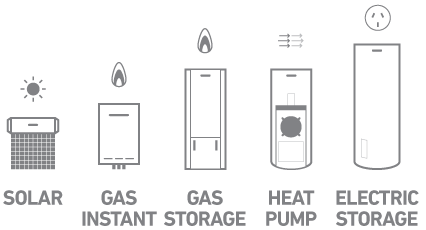|
Hot water systems in strata have been shown to contribute significantly to the total energy cost of a building. Therefore upgrading to a more efficient system for common areas and apartments can both reduce energy consumption, and combat uncertain future electricity costs.
Solar hot water systems would seem like the best choice in terms of energy efficiency, but can be difficult to retrofit into existing buildings. It can also require a lot of roof space for the solar panels required to service the hot water unit. Heat-pumps also seem to be a good choice except the unit needs to be outside and are quite noisy. In many cases, electric instantaneous hot water systems would be the best choice, as they do not require tank storage and by comparison, have a heating efficiency of 99.5 percent. These units also achieve the lowest levels of water wastage of any hot water system available, due to the unit’s capacity to reduce delivery pipe lengths and ability to heat water quicker than most systems. According to a study conducted by CarbonetiX Climate Change Solutions, a typical apartment that uses a centralised gas-fired system would waste 7000 litres of water over the course of a year while an instantaneous electric water heater system can reduce this down to just 1600 litres. Using instantaneous hot water systems can improve efficiency, lower carbon emissions, and lower costs to the consumer. There are significant opportunities for instantaneous electric systems to perform better than gas and solar-boosted gas, in greenhouse gas emissions and energy demand. Given the uncertainty surrounding electricity prices in the future, having the most energy efficient hot water system can contribute to future-proofing strata. For further reading on see Sustainability Victoria and the Australian Government's guide to hot water. Ragnar Ilustre Contributor, Strata Energy News
0 Comments
Your comment will be posted after it is approved.
Leave a Reply. |
Strata Energy NewsReceive our newsletter updates by email. Categories
All
Archives
May 2024
|
Services |
Company |
|


 RSS Feed
RSS Feed